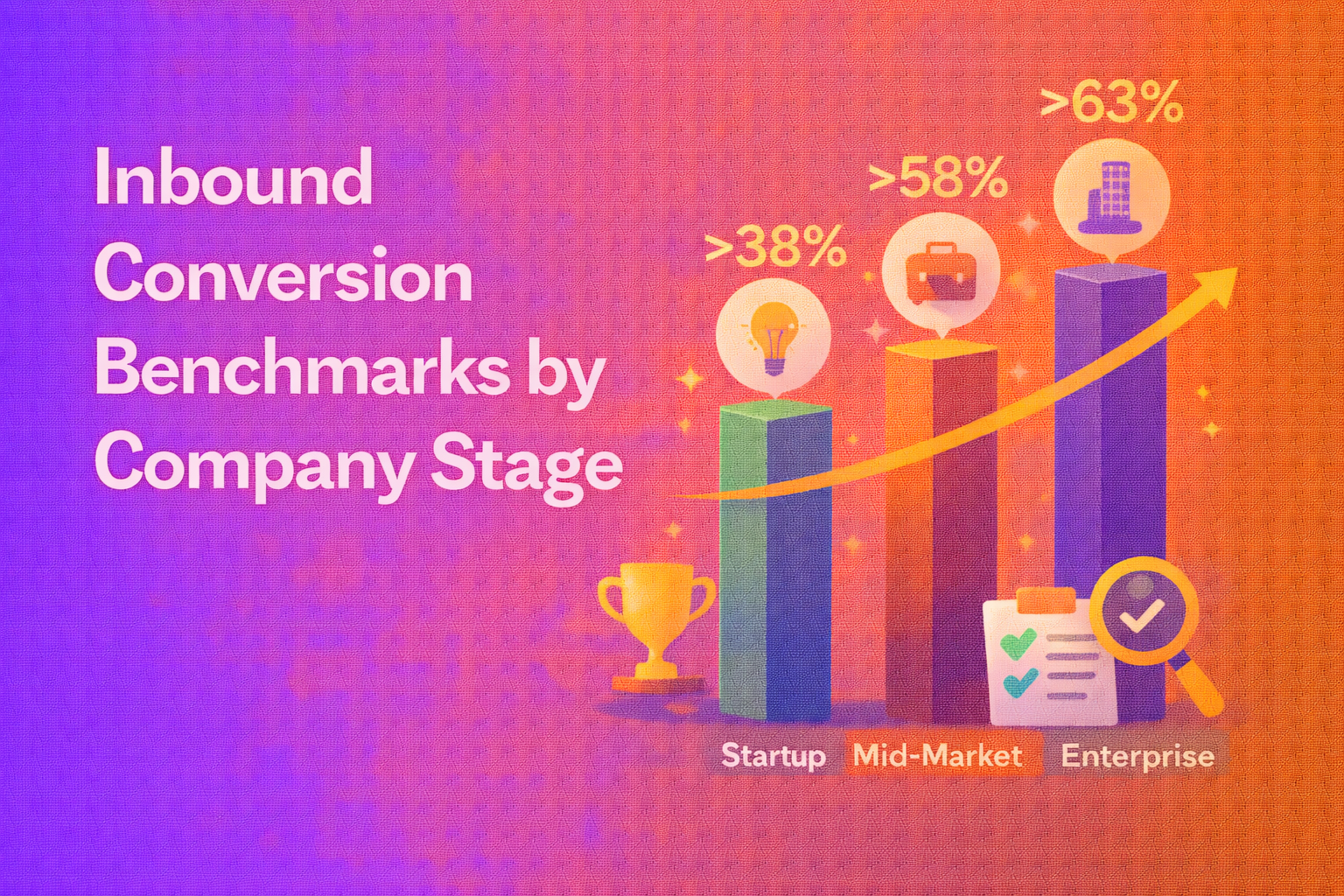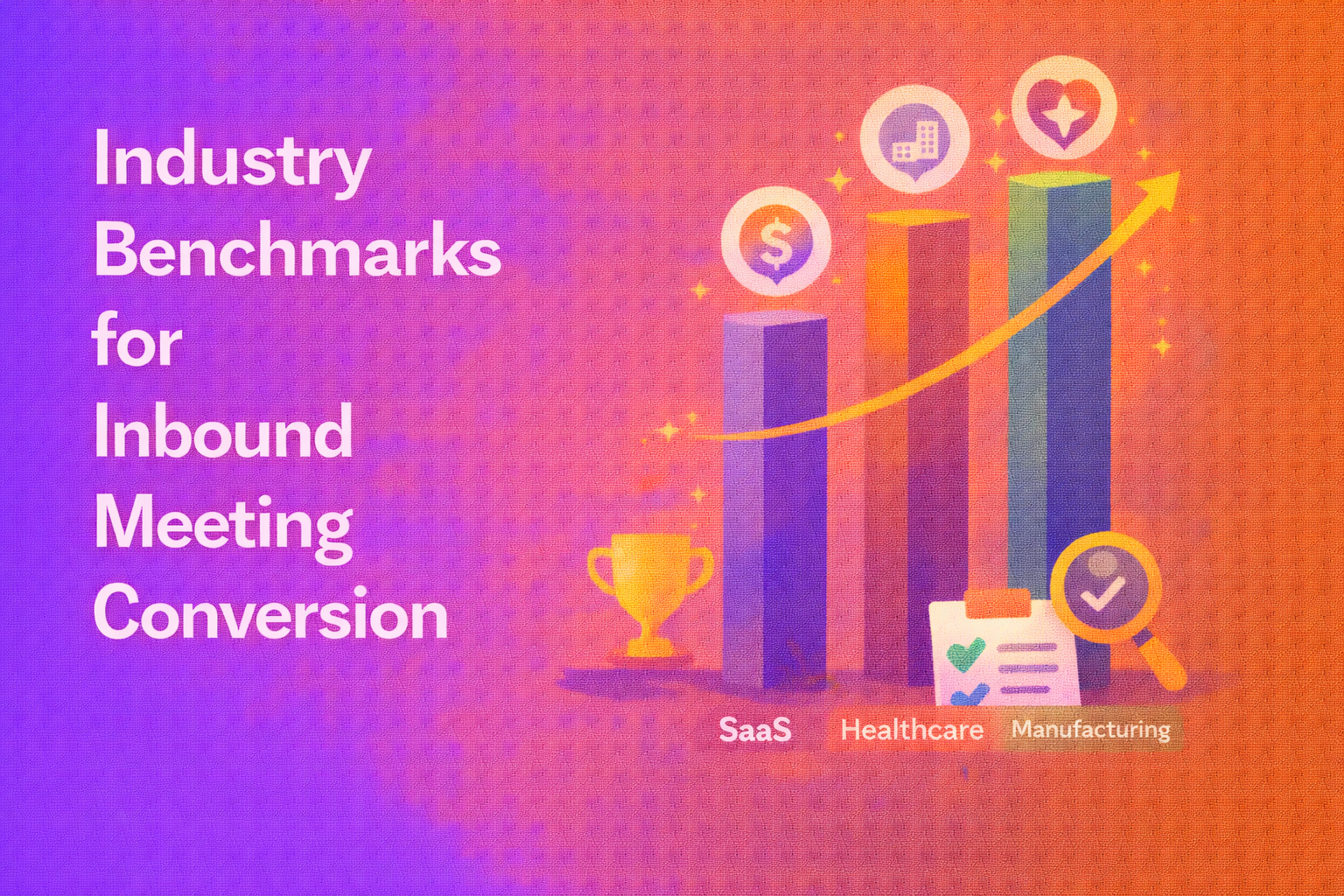Securing high-quality demos is one of the most valuable levers in B2B growth—but it’s also one of the hardest. When sales teams spend time on the wrong leads or rely on outdated processes, pipeline suffers.
The solution isn’t to push harder—it’s to qualify smarter. With the right ops strategy—using lead scoring and intelligent routing—teams can ensure every booked demo has a better chance of turning into pipeline.
So what does that strategy look like?
Smarter Routing = Better Conversations
When a buyer raises their hand, they expect a relevant and helpful experience. Intelligent routing ensures leads are matched with the right rep based on fit—whether that’s expertise, region, or prior deal history.
This is where ops can make or break demo quality. A buyer interested in a niche use case shouldn’t be handed to a generalist. A lead with urgency shouldn’t wait two days for a follow-up. The faster and more accurately you route, the better the demo outcome.
Lead Scoring That Prioritizes What Matters
Lead scoring gives sales teams clarity on who’s ready—and who’s not. By ranking leads based on engagement signals (like website visits, content downloads, and email interactions), sales teams can focus on buyers who are more likely to show up and convert.
Scoring models should evolve over time. Reviewing which leads book, show up, and convert allows marketing and ops to refine criteria—cutting out noise and doubling down on the traits of high-intent buyers.
Predictive scoring takes this a step further, using machine learning to analyze past outcomes and surface leads that match the profile of your best customers.
The Data Behind Better Scoring
Great scoring requires great data. Signals from your CRM, MAP, and website are essential—but so is broader context like job titles, company size, or recent funding. Layering in social and intent data adds even more richness to how you prioritize.
A consistent feedback loop between sales and marketing helps validate which signals actually correlate with held demos and won deals. The more you learn, the smarter your model gets—and the more qualified every booked meeting becomes.
Tech That Helps Sales Move Faster
CRMs, automation platforms, and calendar tools should be configured to eliminate friction. Real-time alerts, automated lead enrichment, and instant rep matching reduce the lag between hand-raise and booked demo.
Dashboards make it easy to monitor show rates, booking times, and conversion by lead source—giving ops and marketing a clearer picture of where to optimize.
When these tools are aligned, the result is a process that consistently delivers better demos, faster.
People Still Matter: Train for Quality
Even with the best routing and scoring in place, sales reps need to know how to turn a qualified lead into a meaningful conversation.
Training on discovery techniques, objection handling, and product storytelling is essential—especially as buyers get savvier. Teams that regularly practice and share feedback close the gap between potential and performance.
Peer reviews, win/loss analysis, and real demo recordings are some of the best tools for sharpening rep skills and improving the consistency of demo outcomes.
Feedback Loops That Improve Over Time
Ops teams should build in feedback mechanisms between sales and marketing to refine how leads are scored, routed, and messaged. When a rep flags a mismatch, it should inform the next campaign. When a lead converts quickly, figure out why—and find more like them.
Post-demo feedback from buyers also adds critical insight. What worked? What didn’t? What made the experience helpful—or forgettable? These learnings should feed back into the system and shape how future demos are structured.
Metrics That Matter
To track whether demo quality is improving, focus on these KPIs:
- Demo show rate
- Demo-to-opportunity conversion rate
- Time-to-book after lead submission
- Average rep response time
- Win rate by lead source or score
The goal isn’t just more booked meetings—it’s more of the right ones. These metrics help teams stay accountable to that.
Teams Already Doing This Are Winning
Companies that use lead scoring and routing effectively don’t just increase demo volume—they increase the percentage that converts. That’s the difference between sales and scale.
When ops, marketing, and sales align around qualifying smarter, they maximize resources and close more revenue—without needing more leads.
Final Thought: More Quality, Less Waste
Every minute a sales team spends chasing the wrong lead is time lost. Smart routing, strong scoring, and tight feedback loops help make sure every demo on the calendar has real potential.
When the right systems are in place, reps spend less time triaging and more time closing.
That’s what qualifying smarter looks like.
Let RevenueHero help your team turn high-intent users into booked meeting without slowing down your funnel.












